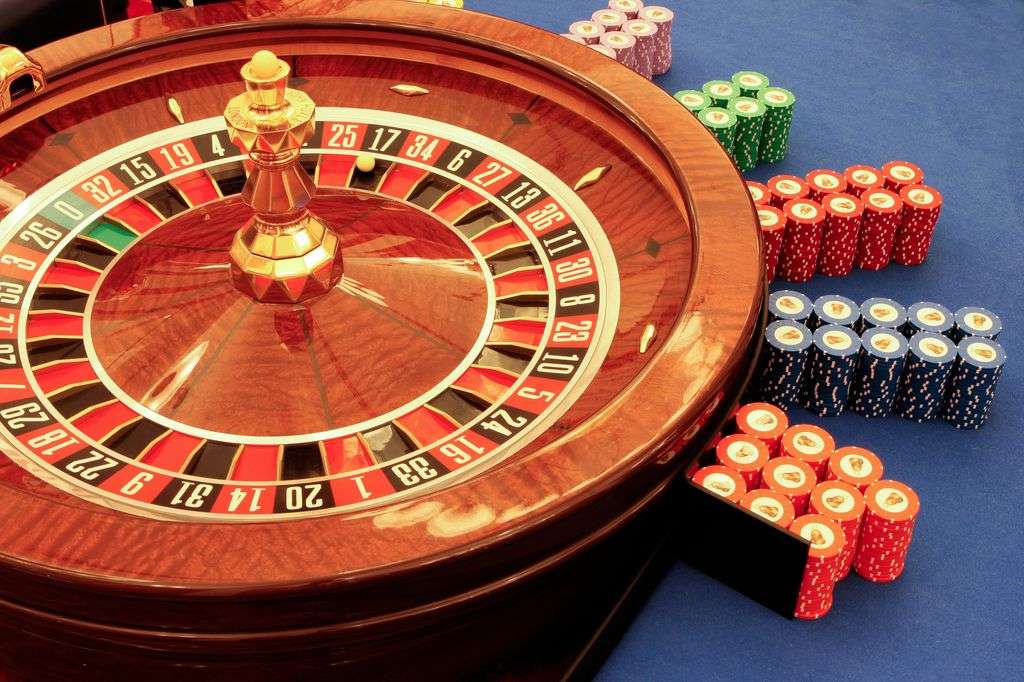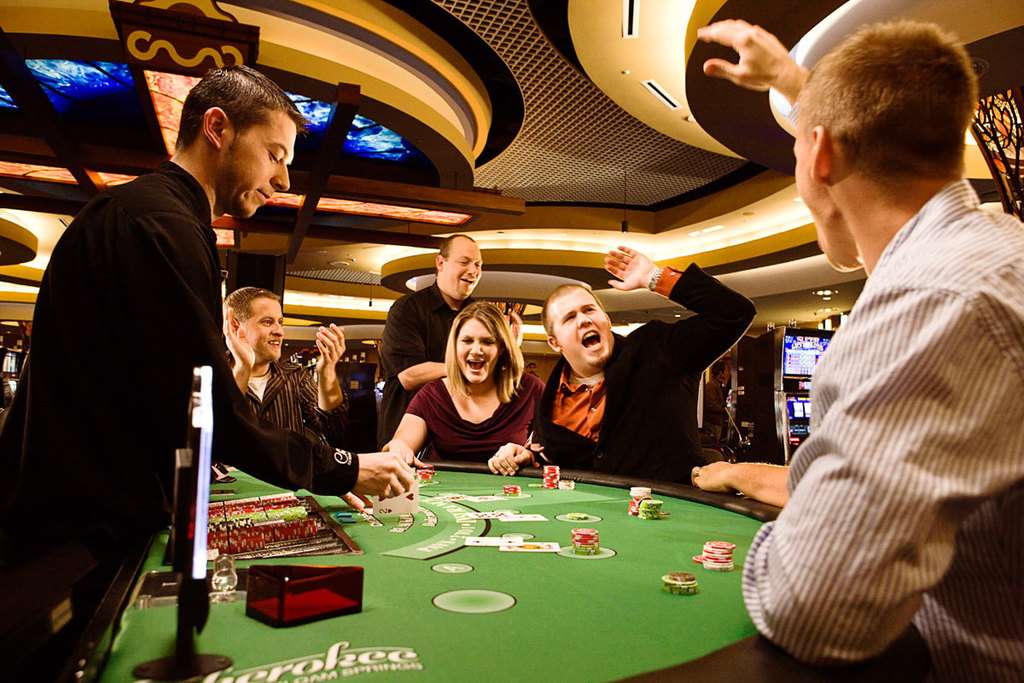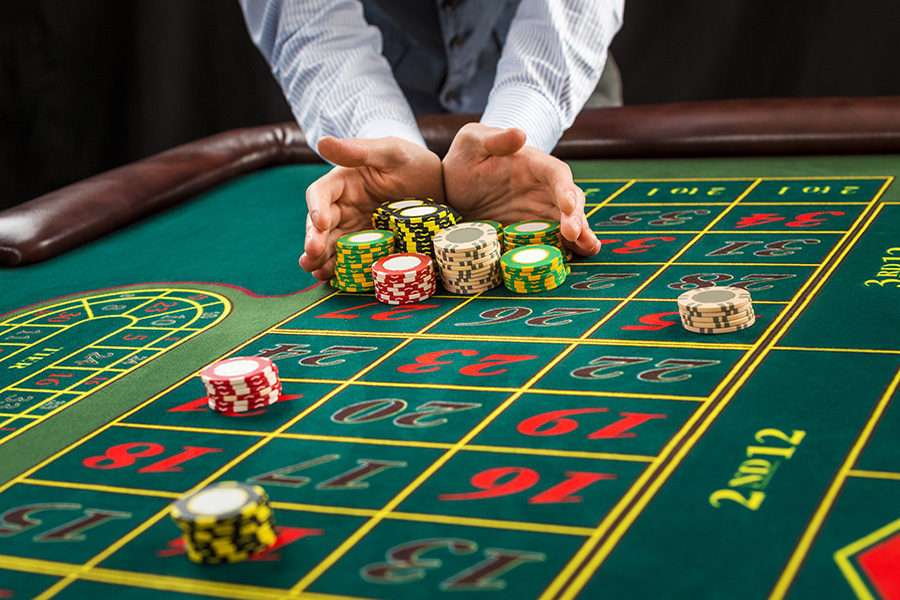How To Recover From A Big Gambling Loss

Introduction
How To Recover From A Big Gambling Loss: Recovering from a significant gambling loss can be a daunting and emotionally challenging process. The aftermath of a substantial financial setback can leave individuals feeling overwhelmed, anxious, and unsure of how to rebuild their lives. However, it is important to remember that recovery is possible, and there are constructive steps that can be taken to regain control over one’s finances and emotional well-being.
In the world of gambling, the allure of winning big can lead individuals to take increasingly risky bets, sometimes resulting in substantial losses. Whether it be at casinos, online platforms, or sports betting, the excitement of a potential windfall can cloud judgment, leading to detrimental consequences. When faced with such losses, the emotional toll can be immense, often leading to feelings of shame, guilt, and a sense of hopelessness.
It will explore both financial and emotional aspects of the recovery process, recognizing the importance of addressing underlying issues that may have contributed to the gambling behavior. From seeking professional help and setting up a solid financial plan to finding healthier coping mechanisms and rebuilding one’s life, It will offer a comprehensive approach to overcoming the challenges posed by a big gambling loss.
It is vital to approach this recovery journey with patience and self-compassion, as setbacks may occur along the way. By embracing a positive outlook and making a commitment to change, individuals can gradually rebuild their lives, regain financial stability, and ultimately break free from the grasp of gambling addiction.
Can a gambler recover?
But treating a gambling problem can help you regain a sense of control — and possibly help heal damaged relationships or finances. Treatment for compulsive gambling may include these approaches: Therapy. Behavioral therapy or cognitive behavioral therapy may be helpful.
A gambler can recover from their addiction with the right support, commitment, and treatment. Recovery from gambling addiction is possible, but it is a challenging journey that requires significant effort and dedication. The first step in the recovery process is the problem and accepting that gambling has become an issue. This self-awareness is crucial, as it opens the door to seeking help and making positive changes.
Therapists and counselors can help gamblers understand the root causes of their addiction and develop coping strategies to deal with triggers and cravings. Support groups offer a sense of community and understanding, providing a safe space for individuals to share their experiences and learn from others who have successfully overcome gambling addiction.
During the recovery process, it’s essential for gamblers to establish healthier habits and coping mechanisms. This may involve setting strict financial limits, finding alternative ways to manage stress and emotions, and developing new interests or hobbies to replace the time spent on gambling activities.

Can I get back the money I gambled?
Steps to Obtaining a Refund for Online Gambling Losses
The first step is to contact the online gambling site where you lost the money. Explain the situation and request a refund. The possibility of getting back the money one has gambled depends on several factors, but in many cases, it can be challenging or even unlikely.
When engaging in gambling activities, it’s crucial to understand that the odds are typically in favor of the house or the casino. This means that over time, the house is statistically likely to make a profit, while individual gamblers may experience losses. It’s essential to approach gambling as a form of entertainment rather than a means to make money. In some instances, people may experience a lucky streak and win back some of the money they initially lost. However, this should not be considered a reliable strategy for recovering losses.
If gambling has become a significant issue and is negatively affecting a person’s life, seeking help for gambling addiction should be the priority rather than trying to recover lost money. Addressing the underlying issue of addiction is essential for regaining control over one’s finances and overall well-being.
In some rare cases, individuals who have experienced significant losses due to gambling may find legal recourse if they were victims of fraud or misconduct by the gambling establishment. However, such cases are complex and may require legal assistance.
The focus should be on responsible gambling practices and seeking help if gambling becomes a problem. It’s essential to treat gambling as a form of entertainment and to never gamble with money that one cannot afford to lose.
Can people recover from gambling?
Some people with a compulsive gambling problem may have periods of remission — a length of time where they gamble less or not at all. But without treatment, the remission usually isn’t permanent.
People can recover from gambling addiction with the right support, treatment, and determination. Like any addiction, overcoming gambling addiction is possible with the proper approach and commitment to change.
Recovery from gambling addiction typically begins with acknowledging the problem and accepting that gambling has become an issue in one’s life. This self-awareness is a crucial first step, as it opens the door to seeking help and making positive changes.
Therapy and counseling can play a significant role in the recovery process. Professional therapists can help individuals understand the underlying reasons for their gambling behavior, address any co-occurring mental health issues, and develop coping strategies to deal with triggers and cravings.
These groups offer a sense of community and understanding, providing a safe space for people to share their experiences and learn from others who have successfully overcome gambling addiction.
During the recovery journey, individuals must also develop healthier habits and coping mechanisms. Setting strict financial limits, finding alternative ways to manage stress and emotions, and replacing gambling activities with more constructive hobbies can be essential components of recovery.
By taking one day at a time and seeking help when needed, people can gradually regain control over their lives and break free from the grip of gambling addiction. Recovery from gambling addiction is possible with the right resources and determination.
Why do I always lose in gambling?
Many gamblers lose because they never give themselves an opportunity to win; even when they have won a significant amount they will continue to bet until they lose it all again.
Experiencing frequent losses in gambling can be a frustrating and disheartening experience. Several factors may contribute to this recurring pattern:
1. Randomness and Probability: Gambling activities, especially casino games and slot machines, are designed with a built-in advantage for the house, known as the house edge. This means that, over time, the odds are stacked against the player, and the house is more likely to win. In games of chance, such as roulette or slot machines, outcomes are determined by random number generators, making it difficult to predict or control the results.
2. Emotional Decision-Making: Emotional decision-making can lead to impulsive behavior and clouded judgment. Gamblers may chase losses by increasing their bets, hoping to recover what they’ve lost. This behavior often leads to even more significant losses, creating a vicious cycle.
3. Lack of Strategy and Skill: In games that involve an element of skill, like poker or sports betting, lacking a solid understanding of the game and proper strategies can lead to consistent losses.
4. Addiction and Compulsive Behavior: For some individuals, gambling may turn into an addiction. This addiction can lead to excessive gambling, neglecting responsibilities, and even borrowing or stealing to fund the habit. Such compulsive behavior can result in significant financial losses and personal turmoil.
5. Inconsistent Bankroll Management: Poor money management can lead to quick losses. Without setting limits on bets and knowing when to stop, gamblers may deplete their funds rapidly.

How do you recover financially after a gambling addiction?
Regaining Financial Security After Gambling Addiction
- Look at the Big Picture. First, assess the big picture
- Assess the Damage Done
- Seek Financial Counselling
- Contact your Creditors
- Turn Over Finances to Another
- Cut Up Credit Cards
- Don’t Leave Sums of Cash at Home
- Have People to Talk to During Stressful Times.
Recovering financially after a gambling addiction requires discipline, patience, and a commitment to making positive changes. Here are some steps to help regain financial stability:
1. Seek Professional Help: Address the gambling addiction by seeking professional assistance from therapists, counselors, or support groups. Understanding the root causes of the addiction and developing coping mechanisms is crucial for long-term recovery.
2. Acknowledge the Problem: Accept responsibility for past financial mistakes and acknowledge the consequences of the addiction. Facing the reality of the financial damage is necessary to begin the recovery process.
3. Create a Budget: Establish a detailed budget to track income, expenses, and debt. This will help in identifying areas where spending can be reduced and create a plan to pay off debts systematically.
4. Prioritize Debt Repayment: Prioritize the repayment of high-interest debts first, such as credit cards or loans. Consider negotiating with creditors to set up manageable payment plans.
5. Build an Emergency Fund: Set aside a portion of income each month to build an emergency fund. Having savings for unexpected expenses can prevent resorting to borrowing or returning to gambling during financial hardships.
Recovering financially after a gambling addiction requires determination and a willingness to make lasting changes in behavior and financial habits. With time, effort, and the right support, it is possible to rebuild financial stability and create a brighter future beyond the grip of gambling addiction.
What should I do immediately after experiencing a big gambling loss?
It’s essential to take a break and avoid making impulsive decisions. Step back, assess the situation, and refrain from chasing losses. Experiencing a big gambling loss can be emotionally and financially devastating, but how you respond in the immediate aftermath is crucial for your well-being and future gambling behavior.
Here are essential steps to take immediately after such a loss:
1. Take a Break: The first and most critical step is to step away from gambling immediately. Emotions may be running high, and the temptation to chase losses can be strong. Taking a break allows you to regain composure and think rationally.
2. Accept and Acknowledge Your Emotions: It’s normal to feel a range of emotions, such as frustration, anger, or sadness. Instead of suppressing these feelings, acknowledge them. Recognize that gambling losses are part of the risk, and everyone experiences setbacks at some point.
3. Avoid Making Impulsive Decisions: It’s common for individuals to attempt to recover their losses quickly by placing more bets. This impulsive behavior can worsen the situation. Refrain from making any gambling-related decisions until you have calmed down and gained perspective.
4. Reach Out for Support: Lean on friends, family, or support groups during this challenging time. Sharing your feelings and experiences with understanding individuals can offer emotional relief and perspective.
5. Review Your Finances: After a significant loss, it’s essential to assess your financial situation honestly. Review your bank statements, credit card bills, and overall financial health to understand the impact of the loss accurately.
Can I recover the lost money quickly by gambling more?
Attempting to recoup losses hastily can lead to even bigger losses. Instead, focus on responsible gambling and setting limits. Attempting to recover lost money quickly by gambling more is a dangerous and ill-advised approach. This practice is often referred to as “chasing losses,” and it can lead to even more significant financial and emotional consequences.
There are several reasons why trying to win back lost money through increased gambling is not a viable solution:
1. Probability and Odds: Gambling activities are designed to have a house edge, meaning the odds are generally in favor of the house or casino. The more one gambles, the more likely they are to experience losses over time due to the inherent advantage the house has.
2. Emotional Decision-Making: Chasing losses is driven by emotions, such as frustration, desperation, or a desire to recoup losses quickly. Emotional decision-making often leads to impulsive and irrational behavior, which can further exacerbate losses.
3. Financial Risk: Gambling more to recover lost money can result in substantial financial risks, potentially leading to even greater debts and financial hardships.
4. Addiction and Dependency: Chasing losses can be a sign of gambling addiction. Engaging in more gambling to recover losses can lead to a cycle of dependence, with individuals becoming trapped in a pattern of harmful behavior.
5. Escalation of Losses: Instead of recouping losses, the practice of chasing losses can lead to an escalation of losses, pushing individuals deeper into a financial and emotional downward spiral.
Is professional help necessary for gambling recovery?
If you find it challenging to cope with the aftermath of a significant loss, consider seeking support from a counselor or therapist. Professional help is often a crucial component of gambling recovery, especially for individuals struggling with gambling addiction.
Here’s why professional help is often necessary for gambling recovery:
1. Expertise in Addiction Treatment: Professional therapists, counselors, and addiction specialists have expertise in understanding and treating addiction, including gambling addiction. They can help individuals identify the root causes of their gambling behavior, address underlying issues, and develop coping strategies to manage cravings and triggers.
2. Non-Judgmental Support: Seeking professional help provides a safe and non-judgmental environment for individuals to discuss their struggles with gambling. This support can be invaluable in opening up about the problem and working towards recovery.
3. Individualized Treatment Plans: Each person’s journey to recovery is unique. Professional help allows for the development of personalized treatment plans that cater to the individual’s specific needs and circumstances.
4. Behavioral Modification Techniques: Therapists can employ various behavioral modification techniques, such as Cognitive-Behavioral Therapy (CBT), to help individuals change their harmful thought patterns and behaviors related to gambling.
5. Relapse Prevention Strategies: Professionals can assist in developing effective relapse prevention strategies, empowering individuals to navigate potential triggers and stressors without resorting to gambling.

Conclusion
Recovering from a significant gambling loss is a challenging journey that requires self-awareness, determination, and discipline. Acknowledging the problem and seeking help are crucial first steps in the recovery process. Whether seeking assistance from support groups, therapists, or loved ones, it’s essential to surround oneself with a supportive network to overcome the emotional and psychological toll of a big loss.
Taking responsibility for one’s actions and learning from the experience is key to avoiding future pitfalls. Establishing healthy financial habits, such as setting budgets and limits, will aid in regaining control over finances and preventing further losses.
Embracing a positive outlook and focusing on personal growth is essential during the recovery process. It’s crucial to recognize that setbacks may occur, but persistence and commitment to change are what truly matter.
Professional assistance, if needed, should not be overlooked. Therapists, counselors, or addiction specialists can offer valuable insights and techniques to tackle the underlying causes of compulsive gambling behavior and promote lasting recovery.
